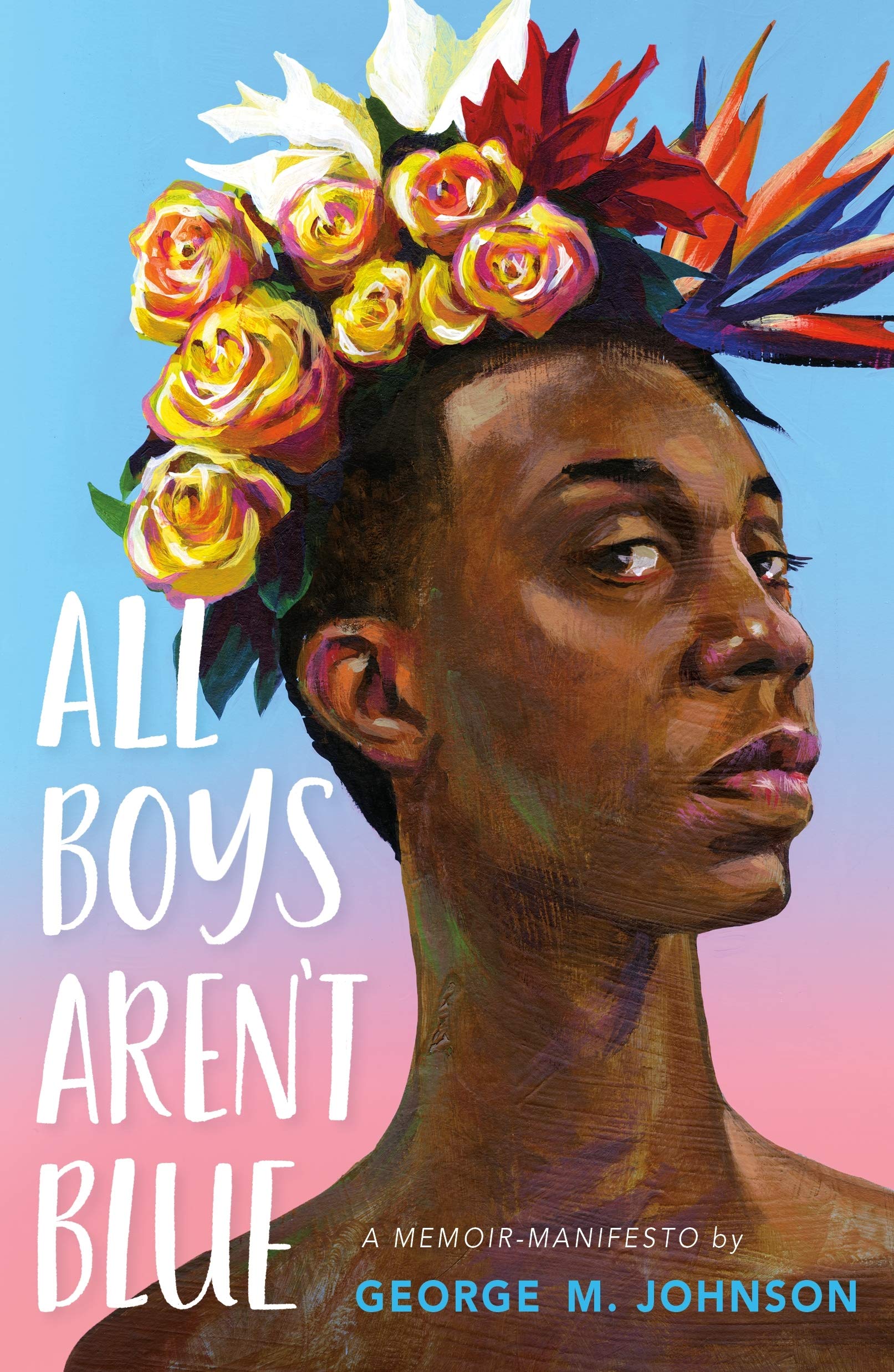Family Book Club: All Boys Aren't Blue

Title: All Boys Aren't Blue by George M. Johnson
Reading level: young adult
Synopsis: In his memoir-manifesto, Johnson has combined essays that explore his youth, teen, and college years as he navigated his sexuality, bigotry, racism, belonging, and death. From an early age—five—Johnson encountered trauma. What started as getting his teeth kicked in, for reasons unknown beyond tension between kids, grew into bullying targeting Johnson's effeminate qualities and perceived sexuality, isolation as he moved from a diverse middle school to a predominantly white high school, self-deprecation as he went to college and still didn't feel comfortable coming out, and grief along the way for various loved ones who passed. But balancing out the difficulties he faced were the steadfast love and loyalty of his family, who may not have always understood him but had his back anyway; the friendships that acted as blockades from interrogations about his identity; the brotherhood and unconditional acceptance he found within his fraternity; and the empowerment and joy he finds in his position now, as a man who is able to speak for and to queer Black boys and raise them up. This book is a celebration for boys who see themselves mirrored in Johnson and a primer for understanding and allyship for any teenager.
Categories: sexuality, gender identity, race/racism, family/friend dynamics, death
Questions:
- For Johnson's whole life, he's been able to depend on his family, even if they don't understand or necessarily agree with his choices. Talk about a time you've relied on your family or friends and they've fully supported you. Are there things you're going through now that you could use support with? Even things you're afraid won't be fully understood?
- When he was in college, Johnson was initially torn about joining a fraternity. On the one hand, he was afraid of the backlash he would get for his effeminate nature. On the other hand, it was incredibly important to him to determine masculinity on his own terms. He ended up loving being in a fraternity—so much that he was eventually its president—and formed lifelong bonds with his brothers. What's a club, activity, or hobby you've been interested in engaging with but have been afraid you won't be accepted? What are pros and cons to trying it out?
- One of the most powerful moments in the book comes when Johnson recognizes the "firsts"—the first Black people who have accomplished various things and the way they've been celebrated for doing so. But he also recognizes that the fact these firsts came in such recent history is in itself an indignity. He says, "But I've come to learn that symbolism is a threat to actual change—it's a chance for those in power to say 'Look how far you have come' rather than admitting, 'Look how long we've stopped you from getting here.'" Think about your school, neighborhood, community, friend group, family, and government. Where do you recognize a symbolic gesture that's taking the place of real change? What can you do to lobby for change to occur?
- Johnson wrote this book as 1) a celebration of queer Black boys and opportunity for them to see a successful person who was once in their shoes and 2) a guide for teenagers who are looking to better understand and advocate for their peers. If you could write a memoir-manifesto, what would your purpose be? Who would you be writing it for? What hope would you be giving them?
- There are three main points in this book that speak openly about death: that of Johnson's cousin, line brother, and grandmother. In these moments, Johnson's pain is palpable, but he also takes time to rejoice in their lives and recognize the support he's gotten from loved ones. What's a difficult loss or moment you've gone through? Who or what helped you move past it? How can you see yourself helping a loved one who is going through something similar?
Activity: In this memoir-manifesto, Johnson uses real stories from his own life to back up the advice he's giving readers. Time to pull out your journal/laptop/phone and follow his lead. Write down moments from your life that you think highlight change you'd like to see made or behavior you'd like to see emulated. Ask your friends and/or family to do the same, and put it all together to create a collaborative compilation.
Thank you so much to Red Balloon Bookshop for partnering with us on this series! If you'd like to see all of the Family Book Club picks in one place, check out their FBC page.